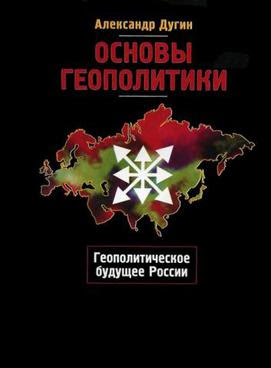 |
| Photos of Kyiv taken by myself |
It’s strange to think that the Kyiv I visited once in 2018, a peaceful, friendly city, with bars, cobbled back alleys, leafy courtyards, and busy grand streets, where people got on with their everyday lives, is now under attack from Russia. I took the free tour of the city, where they explained that the profusion of EU flags was due to their desire for Ukraine to join the EU. I wandered the city's ancient streets, stopping to take photos such as the one above of monuments, and visiting, spellbound, its huge cathedrals and underground caves.
| Kyiv Pechersk Lavra |
Among the saddest things about watching this beautiful city be shelled, one of the most unedifying aspects of watching the news the last few weeks has been observing several commentators on both the far-left and the far-right falling over themselves to repeat Kremlin propaganda.
The fact that these statements appear almost indistinguishable from each other has only confirmed what has been already apparent after the Brexit referendum: that the far-left and far-right meet each other, conforming to the 'Horseshoe theory'. It’s one that was explored in Nick Cohen’s You Can’t Read This Book, in which he focused on "the murky world where the far-left meets the far-right".
 |
| Horseshoe theory of politics (source) |
Shortly after the Russian invasion of mainland Ukraine, Stop The War (STW) released a one-sided statement, with not a single reference to Putin initiating the war of his own volition (though in fairness Tweets since then have called for 'Russian troops out of Ukraine'). Beyond a perfunctory call for the conflict to end with an "immediate ceasefire" and "diplomatic negotiations to end the crisis", the statement then put the invasion squarely at the foot of "failed policies, including the expansion of NATO and US hegemony at the expense of other countries as well as major wars of aggression by the USA, Britain and other NATO powers which have undermined international law and the United Nations". It’s as if Putin had no role to play whatsoever. That was also reflected in an online rally called by STW around the same time called ‘No to War – No To NATO’, with no third clause stating ‘No To Putin’:
 |
It was also reflected in Tweets by STW’s Fiona Edwards, including the one above, who advertised the event with the claim that “the aggressive eastward expansion of NATO, threatening Russia’s security, is the cause of the current crisis in Ukraine”. In another Tweet (below), she claimed that "as the war-mongers in Washington and London escalate their war-mongering against Russia, remember that the first casualty in war is the truth. The truth is that the current crisis in Ukraine is caused by the eastward expansion of NATO. NATO is the aggressor, not Russia". The same sentiments have been on display in Socialist Action's Tweets and websites like Counterfire. Once again, Putin was absolved of crime, as if he had no agency when ordering the invasion.
Even worse, a STW analysis by Andrew Murray from 31st January, prior to the invasion of mainland Ukraine, repeated another baseless claim that has also been smugly parroted by the far left and far right: that Ukraine is 'fascist', 'Nazi', and even run by 'drug addicts'. This line essentially recycled what the Kremlin has asserted in order to justify their invasion of Ukraine, including the claim that Ukraine is "ethnically cleansing Russians" and "banning the Russian language" (having been to Ukraine, I can report that the latter isn’t true – Ukrainian and Russian are spoken alongside each other). While grudgingly conceding that Ukraine has a right to self-determination, albeit with borders that are not "sensible" - as if every international border is "sensible" - it claims that "since the 2014 coup by nationalists, which overthrew Ukraine’s elected President, it has taken a number of undemocratic steps…pro-Russian politicians have been arrested or harassed…Russian has been banned from the public sphere…alone in Europe, Ukraine celebrates Nazi collaborators and pogrom-mongers, like the Bandera movement…its supporters – overt fascists – are also embedded in Ukrainian state apparatus". This well-worn assertion has been explored well in this Guardian article, which points out that Ukraine has a Jewish president, whose own family died in the Holocaust, and explores why so many are making this claim about Ukraine’s Government, which includes unpleasant Jewish tropes, and the concomitant implication that Ukraine must be 'saved' by 'true Christian believers'. It's also been debunked in this excellent article on People and Nature's website.
Claiming that Ukraine’s Government is essentially 'fascist' also wilfully ignores what really happened in 2014. Ukraine’s Government at that point, led by Viktor Yanukovych, was due to start negotiations with the EU over closer ties, with a long-term view to possible membership (though this would’ve most likely taken decades). Panicking at this prospect, the Kremlin threatened to cut off Ukraine’s gas, forcing Ukraine’s Government to cancel talks with the EU, and in the process forcing Ukraine against its wishes to be part of the Eurasian Economic Union (EAEU) sphere, a geopolitical rival to the EU headed by Russia. Unhappy at this, ordinary members of Ukrainian society protested in Maidan Nezalezhnosti square in Kyiv. The protests expressed the wishes of the majority of the population in believing that Ukraine should not be another Belarus, subservient and compliant to the Russian Government, with a dictator similar to Lukashenko in charge. Instead, Ukrainians simply wished for their country to embrace a European social democracy model, similar to the Baltic states, or even Finland, all of whom are successful, happy, democratic, and prosperous, rather than remaining tied to Moscow’s authoritarian orbit. For this, they earned the scorn not just of Russia’s Government, but also of both the far left and the far right.
John Wojcik in Morning Star, for example, backed up the same claims as Murray in this article, opining not just the same tropes about "the persecution the fascist Ukrainian government was visiting on ethnic Russians everywhere in Ukraine", including banning the Russian language, but also claiming that Ukraine "put well-known fascists in charge of the country’s police and military as a reward for fascist support of the coup", and practices "extreme Ukrainian nationalism" (apparently Russian nationalism is allowed, but Ukrainian nationalism isn’t). Wojcik’s angry assertions included mention of "Western capitalist interests" in Ukraine, scalding the fact that an ex-Soviet state has chosen freely to associate itself with successful European democracies rather than follow the Kremlin’s orders, and inferring that Ukraine’s population has been somehow 'brainwashed' by the West. This assertion that Ukraine has been a US-backed fascist/Nazi aberration since 2014, rather than a popular uprising by ordinary Ukrainians, has also been pushed by George Galloway via this Tweet and others, with links to the website of the Communist Party of The Russian Federation, which expands on these conspiracy beliefs, including claiming that "The nature of the current Ukrainian state is an alliance of big capital and the state bureaucracy, relying on criminal and fascist elements under the full political and financial control of the United States...after 2014 Nazi ideology is being implanted in Ukraine".
In doing so, Wojcik and Galloway are freely making the same claims as the Kremlin: that Ukraine is not allowed to choose its own future as a free, democratic state, as the Baltics have, and that instead Ukrainians should instead take what they’re given. The fact that the majority of Ukrainians have chosen to see their country as free, democratic, and prosperous, as the Baltics and Poland are, and Ukraine has been edging closer to this, has meant that they deserve punishment for such erroneous desires. Ukraine’s "crime" has been to choose its own friends.
This belief that Ukraine must be "punished" for wanting to choose their own way, rather than being poor, conflict-driven, and allied to Russia, is symptomatic of an element of the far left in Britain that has always rued the decline of the Soviet Union (SU) and the Warsaw Pact, and embodied in figures such as Jeremy Corbyn’s former Communications chief, and former Guardian journalist, Seamus Milne, who likewise wrote this article about NATO in 2014. Something of this can also be seen in STW’s video here of NATO expansion, in which Germany is perpetually held up as divided even now between East and West, as if in STW’s minds reunification never really quite happened. This echoes Putin’s recent, rambling speech, where he questioned Ukraine’s very right to exist as a sovereign ex-Soviet state – and by implication, all the other ex-Soviet states too. In his own mind, the SU’s fall was an aberration that never really happened, with the ex-Soviet states set to re-join Russia in only a matter of time in a new, revitalised Soviet Union and EAEU; indeed, this belief, and long-term goal of Putin, partly drove Russia’s invasions of Georgia and now Ukraine. This expansionist nature of Putin’s administration, completely rejected by the majority of the populations in those ex-Soviet countries now in the EU, has not been mentioned by STW; instead, the only expansionism and imperialism in their minds are that of NATO. And to justify his invasion of Ukraine, just like the far left, Putin has evoked the idea that Ukraine must be nobly rescued and "denazified" from "fascist Nazi drug addicts" in Ukraine’s Government, who have steered Ukraine away from the path of true Slavic purity. At no point have any of those mentioned ever brought up Russia’s own problems with fascism, including the ultranationalist and neo-fascist Aleksandr Dugin, active within the Kremlin, and author of the geopolitical tract Foundations of Geopolitics in 1997, which didn’t just predict Brexit, but also the annexing of Ukraine, and Georgia before that, by Russia.
 |
| Foundations of Geopolitics by Aleksandr Dugin (source) |
It's not just the far left who have made these claims. Many Brexiteers, such as Nigel Farage, who has made no secret of his admiration for Putin, also concurred with the far left, deliberately conflating the EU and NATO when claiming that the war is "a consequence of EU and NATO expansion, which came to a head in 2014. It makes no sense to poke the Russian bear with a stick". Aaron Banks, likewise, chose to conflate the two (below), as well as claiming that “the EU chose to meddle in Ukraine” and “started this mess”, and compared Crimea to the Isle of Wight (his Twitter now appears to be suspended).
Daniel Hannan, meanwhile, has praised Putin’s ability to “show the West to be dithering, divided, and drippy” (below).
And it’s a sentiment shared across the pond, where the American right has been spellbound by Russia and Putin, seeing it as the "defender" of white values, with an already-established nexus that links Russia to Trump's election in 2016, thus turning on its head the original belief by the American right in the perennial Communist enemy. Once again, Ukraine’s "crime" has been to choose its own friends.
It’s not hard to see why the far-left and the far-right alike are loathe to see Ukraine break away from Moscow’s orbit. It means Ukraine cultivating closer ties to the EU and a united Europe of social democracies, which is anathema to Putin and Farage alike. This, in turn, would reflect badly in an existential sense Russia’s own dysfunctional internal politics, with Ukraine showing – after the example of the Baltics – another way for ex-Soviet states. So, Ukraine had to be punished, in order to 'bring them into line' with Russia, and so be an example to other ex-Soviet states of what happens if you decide to embrace European democracy.
It’s in the interest of both Putin and Farage, in other words, to see Ukraine perennially poor and conflict-driven. Farage and other Brexiteers such as Steve Baker have made no secret that they wish to see the EU broken up and disunited – the very same beliefs that Putin has. This is a belief shared by others in British media and politics, such as Allister Heath of The Telegraph, who has deliberately pushed anti-EU rhetoric on behalf of vested interests such as right-wing think-tanks at 55 Tufton Street (something that I’ve covered already in greater detail elsewhere). That includes a number of wealthy Russian oligarchs, together with members of the American right alike. You can see these links in the graphic below (download and Zoom in if you're having problems seeing the text).
 |
| If you designed this graphic, please contact me to credit me |
By promoting disharmony in Europe, the Brexiteers have found themselves on the same side as the Kremlin, questioning the very existential nature of the EU. The very sovereignty that the Brexiteers on both the far left and far right trumpeted as reason for the UK to leave the EU (in reality, the UK always was sovereign while in the EU) has been conspicuously absent when applied to Ukraine, with the Brexiteers claiming that Ukraine has no right to join the EU and NATO. While the Lexiteers believed that the EU was evil in 'siding' with NATO and Western Europe (despite the fact that a number of EU member-states are not members of NATO); for having 'neoliberal' elements (despite the fact that the UK was always the most neo-liberal member-state prior to leaving); for facilitating Freedom of Movement of EU citizens (a ‘neoliberal’ plot designed to stop the bargaining power of ordinary workers, apparently, even though this hasn’t happened in Germany, a full member); and with some opening up of markets; the far-right disliked the EU – and still do – for its social protection, solidarity between nations, and workers’ rights, all of which are anathema for them. The goal of Brexit for the far-right has always been deregulation, the rolling back of the welfare state, reduced workers’ rights, the snapping up of assets on the cheap among the economic and political chaos wrought by Brexit, and the total privatisation of the NHS as a public body – a kind of disaster capitalism, similar to Russia after the collapse of the SU (‘The Shock Doctrine’, as Naomi Klein dubbed it).
Meanwhile, Spiked magazine seized on their infatuation with Putin and hatred of the EU to dispense with this article blaming identity politics for the war – and by proxy, blaming Western culture and the EU. At this point, it’s worth remembering who Spiked are. They have their roots in the hard-left Trotskyite Revolutionary Communist Party (RCP), whose member Claire Fox now sits as an unelected Baroness in the House of Lords, thus going against everything that the RCP was meant to stand for in their belief in overhauling capitalism. The RCP went bankrupt after their magazine, Living Marxism, was sued by ITV for claiming erroneously that the news channel had fabricated evidence of Serb atrocities against Bosnian Muslims. Fox founded the Institute of Ideas; Spiked emerged from the ashes of this.
Once again, many on the far-left and the far-right found common cause in their opposition to the EU, which, as mentioned earlier, they deliberately conflated with their concomitant dislike for the other piece in this jigsaw, NATO – this despite the fact that NATO and the EU are two markedly different organisations. It is the fear that Ukraine could eventually join NATO, not just the EU, which has stirred the far-left and the far-right, with examples of this article already given. While it is true that NATO was involved in Afghanistan and Libya (though not in the Iraq War, as STW have claimed) - and there is a strong argument that it shouldn’t have been, given that its chief purpose is as a defence pact rather than aggressor - the uncomfortable truth is also that if NATO didn’t exist in eastern Europe, the likes of the Baltics and even Poland could be facing the same prospect as Ukraine is facing now, given that the Kremlin has an expansionist madman in charge. This is especially the case in Latvia, whose population is 40% Russian. Russia has frequently used the pretext of Russian minorities to annex ex-Soviet territory, including not just Crimea and South Ossetia in Georgia, but also the breakaway province of Transnistria in Moldova; indeed, that country, also - like Ukraine - not in the EU or NATO, could be next in the firing line.
While it’s easy to be judgemental about NATO here in the UK, the reality is that for those living in Poland, Slovakia, the Baltic states, and a number of other countries, the fear of a possible invasion from a Russia that under Putin has never quite accepted their independence and consolidation in the EU 'family', is a very real, and not theoretical, possibility. It’s NATO that has protected these states from such an event happening. This reality has been hard for both the far left and far right to accept. Whether NATO could’ve been done away with while Putin was in charge is a moot point.
When George Monbiot called out this collusion between the far-left and far-right on Twitter, and then in The Guardian, he received a pile-on in the replies, with many claiming that he was creating a straw man that doesn’t exist. But Monbiot was right. Just as with Brexit, elements of the far-right have been indistinguishable, conforming to the horseshoe effect. In denouncing NATO and the West while only briefly disowning Putin’s actions, they’ve joined Russia in condemning Ukraine’s belief that their rightful future is in the European fold of prosperous and peaceful social democracies. The far left and the far left have to ask themselves: why should Ukraine not be allowed the right to choose their own destiny and go down this path?



















